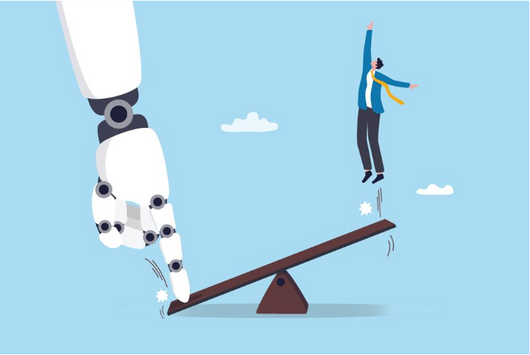Alerts


Many workers worldwide view artificial intelligence as a threat to their jobs — a profit tool for companies rather than people. But Singapore’s AI strategy flips that perception. By embedding AI into national upskilling programs, Singapore reframes technology as a shared opportunity, not a corporate weapon. The result? Workers feel more confident, not fearful, about the AI-driven future.
Globally, employees in AI-heavy workplaces report high anxiety. In the UAE, for example, 85% use AI daily — yet nearly half fear job loss, according to Mercer’s 2025 HR Technology Report. Singapore stands out as the exception. Its AI strategy treats automation as a people project, investing in education, reskilling, and inclusion. This national approach turns AI adoption into empowerment, not replacement.
Under Smart Nation 2.0, Singapore made AI a public good. Through SkillsFuture Level-Up, every citizen aged 40+ receives lifelong training credits and monthly allowances to learn new skills. At the same time, initiatives like SMEs Go Digital help small businesses adopt AI responsibly. These programs ensure that AI growth lifts everyone — from corporate employees to entrepreneurs — creating trust instead of fear.
The key lesson from Singapore’s AI strategy is simple: technology succeeds when people trust it. Governments and companies that pair AI investment with inclusive skill-building foster confidence and collaboration. When workers feel part of the transformation, they stop resisting change — and start driving it. Singapore proves that the real foundation of AI success isn’t algorithms; it’s trust.
𝗦𝗲𝗺𝗮𝘀𝗼𝗰𝗶𝗮𝗹 𝗶𝘀 𝘄𝗵𝗲𝗿𝗲 𝗿𝗲𝗮𝗹 𝗽𝗲𝗼𝗽𝗹𝗲 𝗰𝗼𝗻𝗻𝗲𝗰𝘁, 𝗴𝗿𝗼𝘄, 𝗮𝗻𝗱 𝗯𝗲𝗹𝗼𝗻𝗴. We’re more than just a social platform — from jobs and blogs to events and daily chats, we bring people and ideas together in one simple, meaningful space.
Comments